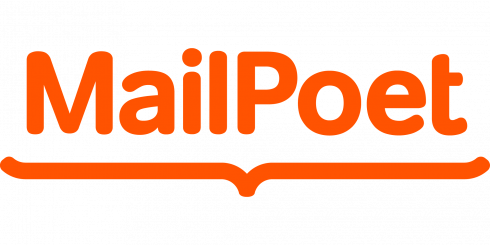Your content is top-notch. Your subscribers are happy. Life is good. But…are you making any money? In this post, we’ll examine the various ways by which you can monetize your email newsletters. After all, someone has to keep the lights on!
First, decide if you should
Before you do anything, first decide if monetizing your newsletters directly is worth it. In many ways, it’s not – the drive to make money from a newsletter may turn off your readers and ultimately cost you subscribers. This is especially true when it comes to advertising.
What would you think of someone who tried to sell you something within a few moments of meeting you? You probably wouldn’t trust them. You’d probably be suspicious of them. You’d certainly be wary of developing a relationship with them.
Sarah Peterson, Smart Blogger
Instead, you should use your newsletters to build up a following, network with others in your industry, and generate opportunities for pitching your own products.
Pitch a product or service
Convinced that a product is the way to go? Good! Creating your own products and services is the easiest (and most effective) way to monetize your newsletters. Easier said than done, we know.
But it doesn’t need to be complicated; a basic eBook is more than sufficient for your first product. Need some help creating your own eBook? Check out this post by Blog Tyrant or this extensive guide by Book Baby.


However, be sure not to over pitch your product. Feel free to mention it in your monthly newsletter (if you have one). You can even send out a few emails announcing the product, its launch date, and a reminder or two.
Any more than a handful of emails, however, will lead to email fatigue, which leads to your readers clicking on the dreaded unsubscribe button.
Remember: your readers probably signed up to your newsletter because they enjoy your content, not because they want to be bombarded with sales emails. While you may succeed in making more money in the short term, you’ll be alienating your audience in the longer term. And, as any seasoned marketer knows: the real money is in long-term customers.
Set up an Affiliate link program
An affiliate program is another straightforward way to generate income. What’s an affiliate program? The idea is simple: if one of your users refers a new customer, they (your original user) get a small bonus. Usually, these are a percentage of the total sale and range from 5% to 15%. You can read more about affiliate marking on CJ.com.
It’s important to only work with affiliates that share your company and brand values. If your affiliates have questionable origins, their dishonesty or brand qualities will reflect back upon you.
“It is generally very important to make sure that the affiliates you are working with can complement your brand.”
Lisa Swann
By setting up an affiliate program, you’ll both earn more money (always a plus) and encourage your users to spread the word. Looking for a WordPress affiliate plugin? We recommend Affiliate WP.
Advertising
As we mentioned previously, we don’t recommend having ads. But, if you insist…be aware that ads are tricky. If you have too many, you run the risk of irritating your subscribers. But, if you have too few (or none), you might be leaving money on the table. And if your target demographic really doesn’t like ads, you may turn them off completely. What’s the solution? A safe middle ground.
The Hacker Newsletter, a curated monthly selection of links from News.YCombinator.com, serves as a good example:
Their emails have a single, curated ad per newsletter. It’s not automatically generated by a third-party program and it doesn’t annoyingly blink and flash. Instead, it’s hand-picked by the newsletter team and it blends seamlessly into the rest of the newsletter. The ad is thus more of a “sponsored by” message than an “advertisement.” The result is an ad that doesn’t seem like an ad.
That said, advertising is often overrated as a monetization method. Unless you have thousands of subscribers, you probably won’t earn much money for the ad to be worth it.
But the funny thing is, advertising is actually a painfully slow path to monetization. Until you have serious traffic, the amounts involved are so small it’s almost embarrassing.
Sarah Peterson, Smart Blogger
Ultimately, you should only include advertisements if they aren’t intrusive. Having no ads is better than having bad ads.
Premium content
Now, let’s talk a little bit about premium content, like videos, courses, and other online services. Do you have specific knowledge or expertise on a particularly lucrative topic? Should you give it away for free? Or, should you charge money for it?
It depends. Generally speaking, it’s best to have a variety of products for a variety of customers. Free content may not earn you money directly, but it helps build up your reputation as an expert and someone worth listening to. Paid content, on the other hand, won’t gain you a large public following. But, perhaps more importantly (depending on your priorities), it will make you money, even if your readership is tiny.
“[Which content should be free and which should be paid?] There is no real right or wrong answer here – it very much depends on your topic, your audience and the nature of your membership site.”
Mike Morrison
The best solution is thus to have both; free content for establishing your expertise, and paid content for those who want to learn more (and are willing to pay for it.) We recommend having both a free newsletter and paid autoresponder courses. In this manner, you’ll be able to capture the entire range of people interested in your content.
Need some help deciding which content should be free and which should be paid? Check out this podcast episode by The Membership Guys.
Get sponsored by your readers
Last (but not least), we should mention a few new startups operating in the content creation market. The single most popular one is called Patreon. The idea behind Patreon is simple: your readers (or watchers) can sponsor you monthly. Rather than a single lump sum (as in Kickstarter), you’ll receive the money on a regular monthly schedule.
Patreon is currently the dominant player in this market, but there are some other niche sites. Ko-Fi lets your readers buy you (the monetary value of) a cup of coffee, while Liberapay and Gratipay are more targeted at developers and software projects.
How do you monetize your own newsletters? Let us know in the comments!

